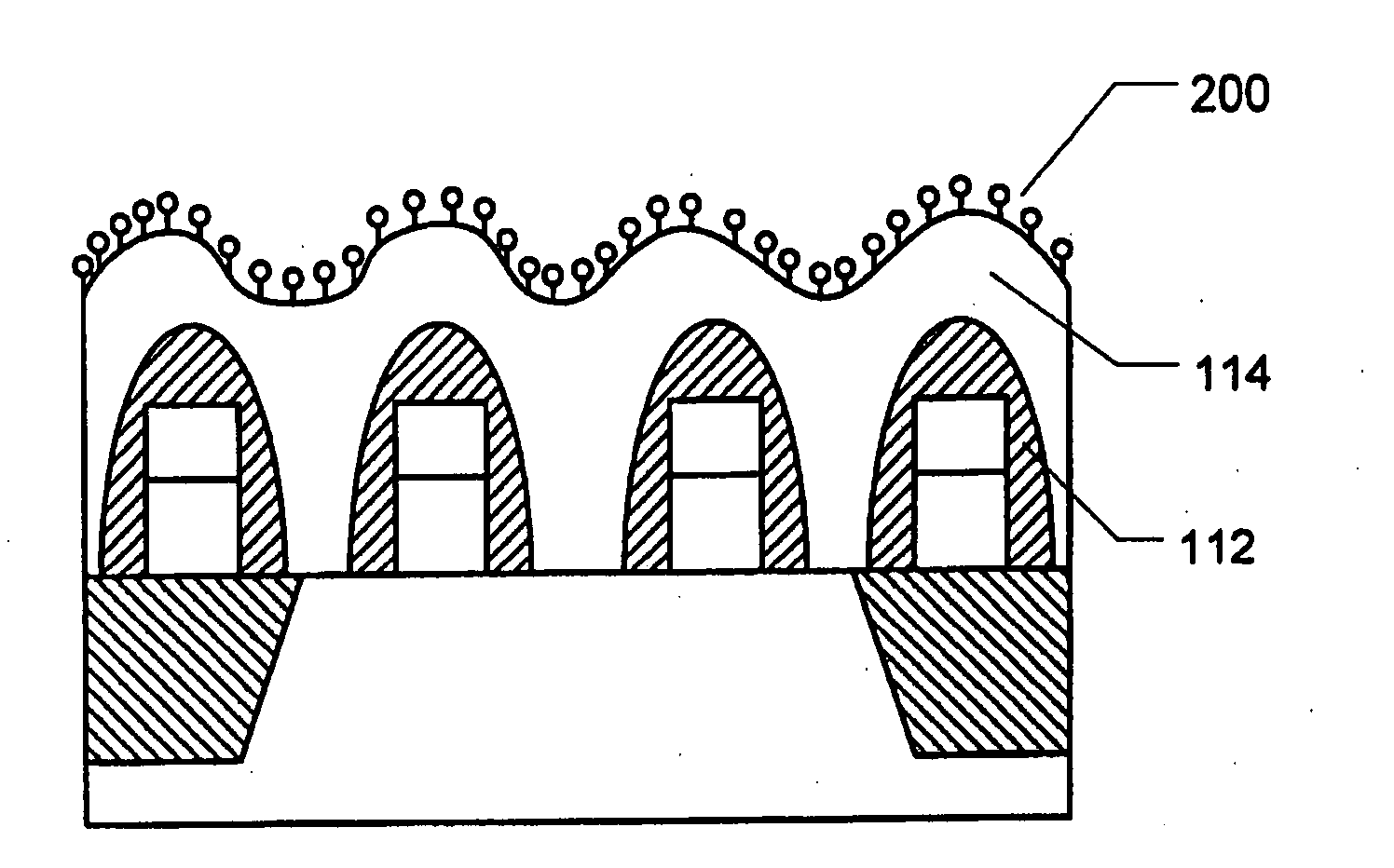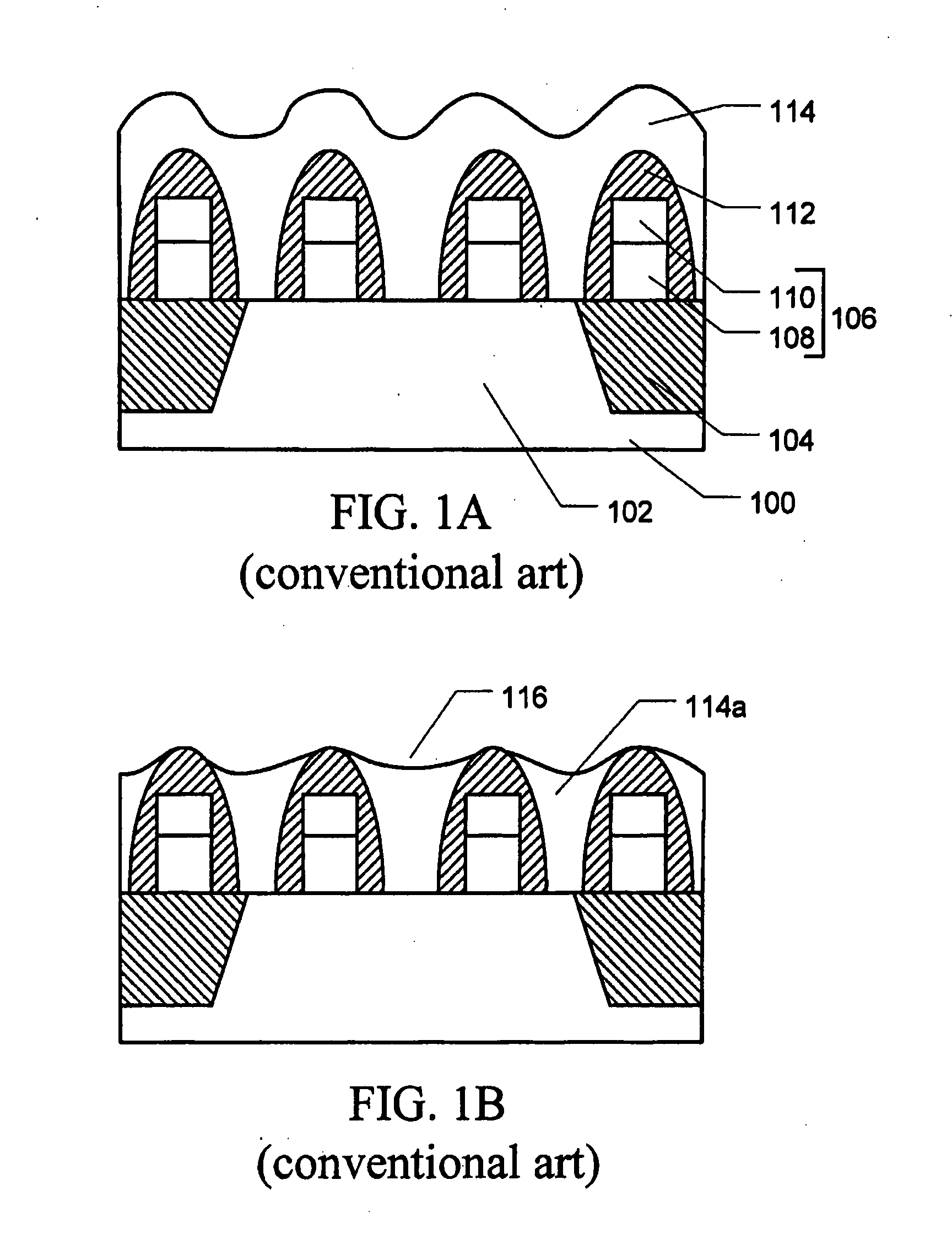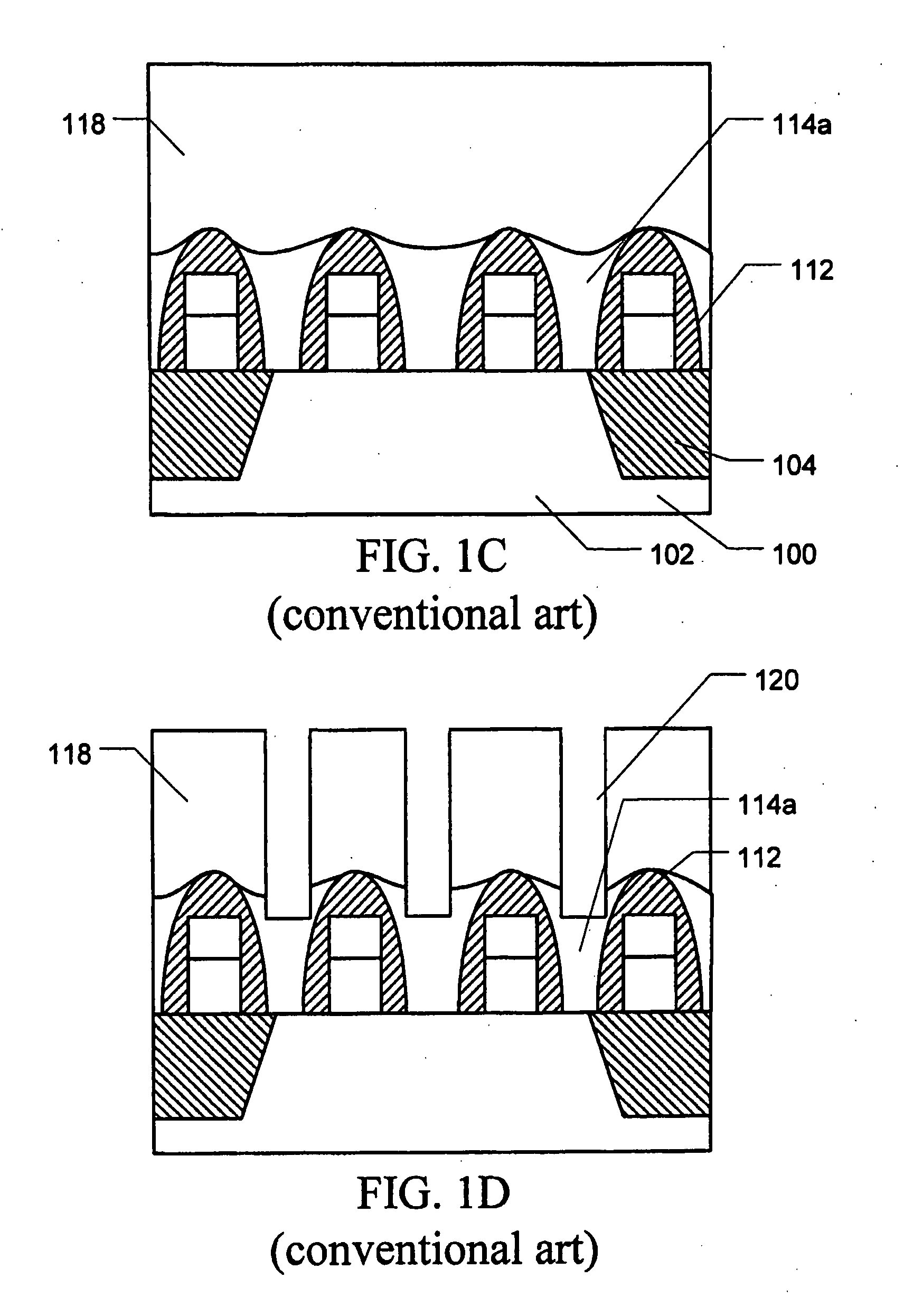Slurry compositions and CMP methods using the same
a technology of slurry composition and cmp method, applied in the direction of lapping machine, polishing composition, other chemical processes, etc., can solve the problems of compromising subsequent processing, unable or practical to utilize a polishing stopping layer, and producing a more non-planar surface, so as to reduce or eliminate the excessive removal of the polysilicon layer
- Summary
- Abstract
- Description
- Claims
- Application Information
AI Technical Summary
Benefits of technology
Problems solved by technology
Method used
Image
Examples
Embodiment Construction
[0024]Accordingly, the exemplary embodiments of the present invention comprise or incorporate a slurry composition for the chemical mechanical polishing of a polysilicon layer that includes at least a carrier liquid, abrasive particles, and a polymeric surfactant that includes both hydrophilic and hydrophobic functional groups. The polymeric surfactant will include at least one polymer alcohol including ethylene oxide (EO) and propylene oxide (PO), either as a copolymer or as a triblock polymer.
[0025]When used for polishing polysilicon, the hydrophobic functional groups of the polymeric surfactant attach preferentially to the exposed polysilicon surface, thereby forming a passivation layer. This passivation layer is sufficient to reduce the removal rate of the polysilicon layer relative to any exposed silicon oxide or silicon nitride surfaces and reduce or eliminate the excessive removal of polysilicon. The slurry composition may, of course, and preferably will include additional co...
PUM
| Property | Measurement | Unit |
|---|---|---|
| particle size | aaaaa | aaaaa |
| particle size | aaaaa | aaaaa |
| particle size | aaaaa | aaaaa |
Abstract
Description
Claims
Application Information
 Login to View More
Login to View More - R&D
- Intellectual Property
- Life Sciences
- Materials
- Tech Scout
- Unparalleled Data Quality
- Higher Quality Content
- 60% Fewer Hallucinations
Browse by: Latest US Patents, China's latest patents, Technical Efficacy Thesaurus, Application Domain, Technology Topic, Popular Technical Reports.
© 2025 PatSnap. All rights reserved.Legal|Privacy policy|Modern Slavery Act Transparency Statement|Sitemap|About US| Contact US: help@patsnap.com



